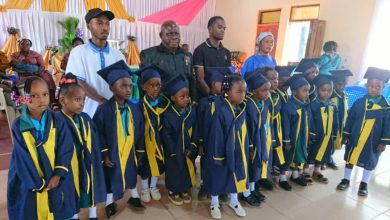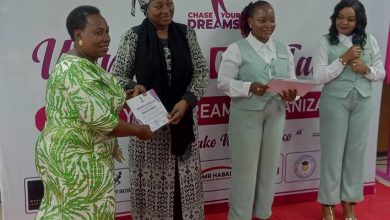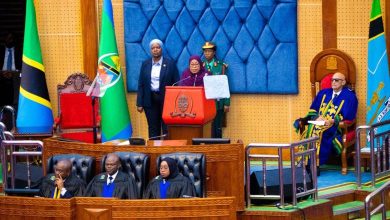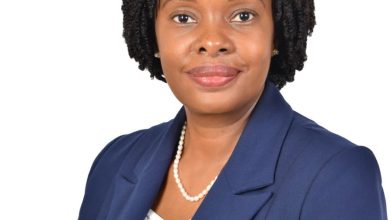Healing lives: Lindi women triumph
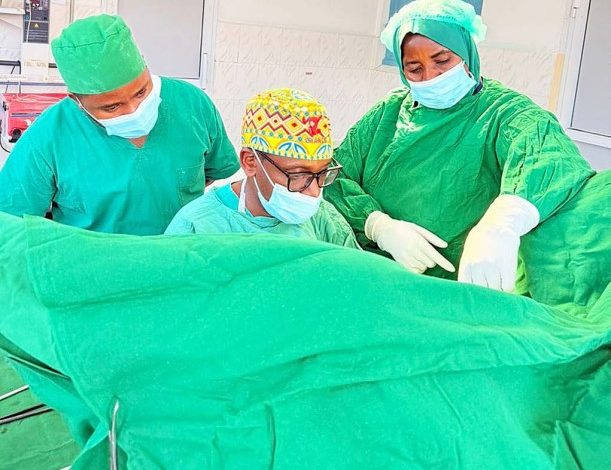
LINDI Region is a treasure trove of natural and cultural wealth, celebrated for its pristine Indian Ocean beaches, lush forests, historical landmarks and the vibrant heritage of the Mwera and Makonde communities.
Beyond its scenic beauty, the region offers abundant investment opportunities, ranging from cashew and sesame farming to fishing, eco-tourism and the emerging natural gas sector, making Lindi a land of both tradition and economic promise.
Yet, despite its abundant natural resources and rich cultural heritage, Lindi remains among the regions most affected by obstetric fistula. In response, the government, together with development partners, has invested in strengthening health infrastructure and enhancing the capacity of healthcare professionals to tackle this pressing challenge.
Significant progress has been made in maternal and child health services, including fistula treatment, through partnerships with CCBRT and corporate contributors such as Equinor Tanzania.
Since 2019, a transformative collaboration between CCBRT, Sokoine Regional Referral Hospital and Equinor Tanzania has provided free surgical treatment and rehabilitation to 207 women suffering from obstetric fistula and other gynaecological conditions restoring dignity, health and hope.
Before the project began, women with fistula in Lindi faced daunting challenges, often forced to travel all the way to Dar es Salaam for treatment an impossible journey for many.
Countless women suffered in silence, hidden from their communities. Today, thanks to the efforts of CCBRT and Equinor, treatment is available locally, with well-trained clinicians, modern equipment and improved services, bringing care and hope closer to home.
“Women with fistula had no choice but to travel long distances to Dar es Salaam for treatment, often without the means to do so. Many suffered in silence, hidden from society.
Today, thanks to CCBRT and Equinor, we have built capacity right here in Lindi. Our clinicians are trained, our equipment is modern and our services are improving,” recalls Sokoine Regional Referral Hospital, Medical Officer in Charge, Dr Alexander Makala.
“We ask our Government, CCBRT and more corporate partners to join hands in this important initiative as the problem is far from over. Increased funding is required to enhance awareness, facilitate early diagnosis and ensure effective treatment.” Among the many women whose lives have been transformed is Saada Hassan, 50, from Liwale District. Speaking from her hospital bed at Sokoine Hospital, she shared her emotional story: “I lived with fistula for nearly 10 years. I was called names the incontinent one’, ‘vegetable’. I was isolated.
Then I heard a radio announcement and called the number. I was given transport money and welcomed with kindness. I’ve now received treatment and will return home with my dignity restored.” Another beneficiary, Amina Juma (name changed), who underwent surgery in 2021, now runs a tailoring business in Nachingwea: “After my surgery, I joined the Mabinti Centre. I learnt sewing and screen-printing. Today, I earn my own income and teach other women. I tell everyone: Fistula Inatibika!”
Beyond Surgery: Skills for Independence
CCBRT’s Mabinti Centre has trained 33 women in vocational skills including sewing, beading and crochet through Equinor’s funding. In addition, each woman received a starter kit including a sewing machine, fabric and tools at graduation to begin their journey toward financial independence.
Yohana Kasawala, Manager of Projects at CCBRT hospital, remarked: “Women impacted by fistula often arrive traumatised and broken. Surgery and rehabilitation help them heal physically, but vocational skills training enables them to reclaim their future.
We are profoundly grateful to our government under the leadership of President Dr Samia Suluhu Hassan and to Equinor for unwavering support.” CCBRT in collaboration with its partner the Sokoine Regional Referral Hospital is conducting a free medical camp in Lindi Region and neighbouring areas, providing treatment to 12 women suffering from obstetric fistula from 22nd to 26th September 2025, conducted.
According to Mr Kasawala, this marks the final camp, concluding the three years implementation of the phase three fistula treatment project in Lindi Region, jointly undertaken by CCBRT, Sokoine Hospital and Equinor. The first phase began in 2019/2020 followed by the second phase in 2020/2021.
“The Fistula treatment project in Lindi has been implemented with great success meeting over 90 per cent of our targets. However, the need remains significant. Awareness of fistula is still very low in rural areas and many women continue to suffer in silence. There are also fistula cases that have other disabilities.
We appeal to Equinor and other stakeholders to continue investing in this vital work of restoring dignity and value to these mothers”. Social Performance Officer from Equinor Tanzania, Dr Naomi Makota, attended the surgical camp at Sokoine Regional Referral Hospital and affirmed her company’s commitment: “We are humbled for the opportunity to partner with CCBRT and contribute to making a difference in the lives of women in Lindi and in extension to Tanzania’s society overall.
We believe the support provided through funding the fistula treatments and vocational skills training will go a long way to elevate wellbeing, economic activities and further development of the local community. It is an initiative we are proud of, in line with Equinor’s purpose to provide energy for people, facilitate progress for society and to always search for ways to create a better future.”
The Bigger Picture: A National Challenge
Each year, an estimated 3,000 Tanzanian women develop obstetric fistula, a condition that causes uncontrollable leakage and often results in social exclusion. While progress in Lindi is encouraging, the need for continued awareness, early intervention and accessible treatment remains urgent.
A Call to Action
The success in Lindi demonstrates what can be achieved through collaboration, compassion and commitment. But the fight against fistula is far from over. With sustained funding, expanded outreach and continued training, Tanzania can move closer to a future where no woman suffers in silence. As Saada Hassan expressed with tears of joy: “I am no longer ‘the incontinent one’. I am Saada. I am healed. I am whole.”


